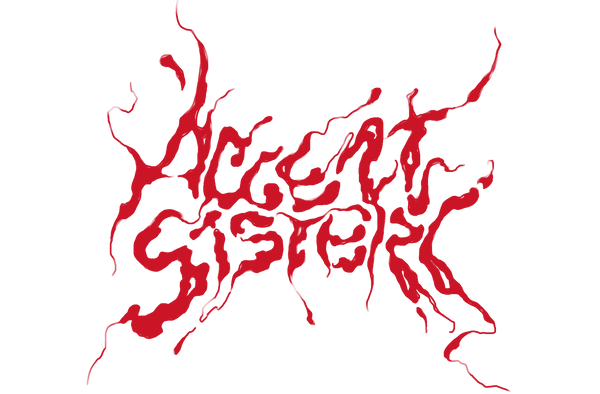《聲韻詩刊》第79期:母語的邊界 Voice & Verse Poetry Magazine No. 79: The Margins of the Mother Tongue
《聲韻詩刊》第79期:母語的邊界 Voice & Verse Poetry Magazine No. 79: The Margins of the Mother Tongue
Couldn't load pickup availability
Information
Information
ISBN:
Author:
Publisher:
Date Published:
出版年 Year: 2024-9
出版社 Published by: 石磬文化有限公司 Musical Stone
簡介 Description
編輯完《母語的邊界》之後,再看到 「母語」 二字,我想起一件往事。一位長輩晚年時患上了阿爾茲海默症,家人看著她的記憶一點一點地喪失,都只把苦澀埋在心裏。某天,她突然說著大家都聽不懂的語言。一位遠房親戚告訴我們,她是在說一種方言,也是她母親說的方言,來自她們出生的地方。親戚的話讓我們恍然大悟,同時又讓我們惆悵。她一生習得了好幾門語言或方言,她最後記得的,或者說她最後忘記的,是她的母語。
在一生中最後的時光裏,身邊的人卻不知道自己在說甚麼,不懂自己的母語。對她而言,母語的邊界是甚麼呢?她的每一次言說都是在嘗試跨越這個邊界,可是每一次都以失敗告終,因為這個邊界之外已經沒有第二門語言可以讓她抵達了。在母語的邊界,每一次言說都預言著沉默,想必是一個無比孤獨的心境和時空吧。這件往事讓我傷心,同時也讓我認識到翻譯是多麼可貴!
「母語的邊界」 是本屆香港國際詩歌之夜的主題。香港國際詩歌之夜是由北島先生於2009年創立的國際詩歌節,今年是十五週年,由香港詩歌節基金會主辦。香港國際詩歌之夜在前十年成為亞洲最具影響力的國際詩歌節;疫情期間以線上活動的形式 「突圍」;疫情結束後恢復線下活動,先是去年邀請了阿根廷詩人迪亞娜.貝列西(Diana Bellessi),今年乘勢擴大規模,從世界各地邀請了十七位詩人。詩人們在詩歌節的活動上就本屆主題 「母語的邊界」 而展開討論,互相交流,還和讀者進行互動。
香港國際詩歌之夜是詩人在現實和抽象兩個層面進行交流的時空。對任何國際詩歌節或者文學節而言,翻譯都是不可或缺的。縱使翻譯並不能完全消除語言和文化隔閡,它無疑製造了一條橋,為交流創造了機會。在香港國際詩歌之夜,詩人通過翻譯跨越自己母語的邊界,走進抽象的詩境、詩人的共同體,一同在有限的時空裏探索艱深而神秘的永恆。同時,翻譯向這個隱秘的詩境打開一道縫隙,讓讀者看見並進一步自行探索和發現詩的秘密。
《母語的邊界》是與會詩人的詩選集,與《聲韻詩刊》合作在香港出版。選集中的每一首詩都有英文和中文兩個版本,譯本均直接譯自原文。我們不想為主題設限,決定以北島先生的長詩《歧路行》的〈序曲〉作為本書的代序。我們在編輯和翻譯過程中都難免會遇到困難,每當遇到這種時刻,我們都盡量和詩人保持溝通,共同探討大家都可以接受的翻譯方法。艾略特.溫伯格的效仿文天祥《集杜詩》的寫作方法,提取和改編杜甫詩中的思想、意象和典故,寫出了這部虛構的杜甫自傳,震驚世界詩壇。《杜甫的一生》(The Life of Tu Fu)。我和溫伯格通過電郵就如何翻譯這部作品進行討論,並決定盡量以現代漢語來呈現英文原文,而不是拼貼杜甫的詩句。這種類似回譯的方式,就是我和溫伯格討論的結果。
北島先生說:「文學翻譯處在母語的邊界之內,它就是母語的一部分。」 從母語出發,經過重重翻譯,又回到母語。時間流逝,母語變遷,邊界游動,彷彿詩聖杜甫降臨香港國際詩歌之夜⋯⋯
宋子江
2024年7月1日
寫於香港及多倫多
After completing the editing of The Margins of the Mother Tongue, the words “mother tongue” brought forth a poignant memory. In her later years, my grandmother suffered from Alzheimer’s disease. Our family quietly bore the sorrow while her memory gradually declined. One day, she began speaking in a language none of us could understand. A distant relative told us that she was speaking a dialect, the same dialect her mother spoke, from the region in which they had been born. This revelation was both enlightening and melancholy. Over her lifetime, she had learned multiple languages and dialects, yet the one she ultimately remembered—or rather, the last one she forgot—was her mother tongue.
In the twilight of her life, those around her could not understand what she was saying, in her own mother tongue. What did the margins of the mother tongue signify for her? Each attempt to speak was an effort to cross margins, yet each attempt ended in failure, as there was no other language left beyond these margins for her to reach. At the margins of the mother tongue, each utterance foretold silence, a profoundly solitary state of mind and existence. This memory saddens me, but it also made me realize the invaluable nature of translation.
“The Margins of the Mother Tongue” is the theme for this year’s International Poetry Nights in Hong Kong (IPNHK). Founded in 2009 by Bei Dao, the IPNHK, now in its fifteenth year, is organized by the Hong Kong Poetry Festival Foundation. In its first decade, it became the most influential international poetry festival in Asia. It adapted to an online format during the pandemic, and after the pandemic it has resumed in-person activities. Last year Argentine poet Diana Bellessi was invited, and this year the event has expanded, inviting seventeen poets from around the world. The poets will interact with readers and audiences and exchange ideas and discuss the theme of The Margins of the Mother Tongue.
The IPNHK is a platform for poets to engage on both a concrete and abstract level. Translation is indispensable for any international poetry or literary festival. While translation may not completely bridge linguistic and cultural gaps, it always creates bridges, fostering opportunities for exchange. At the IPNHK, poets transcend the margins of their mother tongues through translation, entering the abstract realm of poetry and the community of poets and exploring profound and mysterious eternity within finite space and time. Simultaneously, translation opens a window into this enigmatic realm of poetry, allowing readers to glimpse and further explore and discover the secrets of poetry.
The Margins of the Mother Tongue is an anthology of poems by the seventeen participating poets, with each poem presented in both English and Chinese, translated directly from the original text. We did not wish to constrain the theme; thus, we chose the prologue of Bei Dao’s long poem Sidetracks as the preface for this anthology. Inevitably, we encountered difficulties during the editing and translation process. Whenever these moments arose, we communicated with the poets and translators to explore mutually acceptable translation methods. The Life of Tu Fu by Eliot Weinberger, inspired by Song-dynasty poet Wen Tianxiang’s Du Fu’s Poems Compiled, extracts and adapts ideas, images, and allusions from Du Fu’s poems to create a fictional autobiography of Du Fu, a work that has astounded the global poetry community. Eliot and I discussed via email how to translate this work, deciding to present it in modern Chinese rather than pasting together verses from Du Fu’s poems. This method, akin to back translation but not identical to it, is the result of our discussions.
Bei Dao once said, “Literary translation lies within the margins of the mother tongue; it is a part of the mother tongue.” From the mother tongue, through multiple layers of translation, and back to the mother tongue. Time passes, the mother tongue evolves, and its margins shift, as if Du Fu were to descend upon the IPNHK…
Chris Song
July 1, 2024
Written in Hong Kong and Toronto
關於刊物 About the Magazine
《聲韻詩刊》,一本由香港詩人出版的中英文詩歌雙月刊,創作園地包括詩作、評論、專欄、翻譯等。全年公開徵稿,風格、字數不拘。
Voice & Verse Poetry Magazine is a Hong Kong-based print poetry publication. In each issue, we publish Chinese-language poems and critique pieces on poetry. We also have a section of English-language poems.


